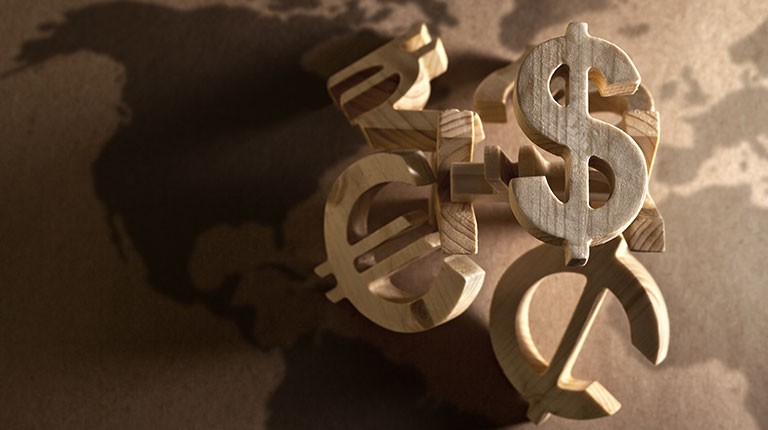By Dr. Rédha Tir*
(3 Minutes Read)
As African leaders meet in Lomé from May 12 to 14, 2025, to confront the debt question head-on, one truth looms large: debt no longer finances transformation—it governs it. The continent continues to borrow, but the issue is less about the amounts, and more about the logic that underpins it. What does this debt enable? And who gets to decide what must be sacrificed?
Sub-Saharan Africa is expected to pay $20 billion in interest alone in 2025, according to the World Bank. These are not investments. They are fees for remaining “credible.” In some states, more than half of public revenues are absorbed by debt service. What remains of sovereignty when budgets serve creditors before citizens?
Debt in Africa is not an episodic crisis. It is a regime. One shaped not merely by fiscal necessity but by power relations: by inherited structures, external prescriptions, and silent expectations. From colonial obligations never cancelled to post-independence “aid,” African nations were folded into a system of financial dependency from the start.
The turning point came in the 1980s. Structural adjustment plans—market liberalisation, privatisation, public sector cuts—didn’t just respond to the crisis. They redefined the role of the state. Debt became a disciplinary tool. Budgets had to pass through external validation; ambitions were trimmed to fit spreadsheets. Sovereignty wasn’t lost—it was reframed as compliance.
What was once a liquidity issue is becoming a durable system of constraint. Debt today functions as a governance mechanism, often invisible but deeply embedded. As scholars like Éric Toussaint and Adrian Bazbauers note, multilateral banks shape norms of “sound debt,” pushing perpetual austerity as a technical necessity. Sovereignty is translated into risk scores. Decision-making is outsourced to markets.
And this complexity is not accidental. With Eurobonds, collateralised loans, and opaque clauses, debt instruments have multiplied, obscuring public oversight and making restructuring nearly impossible. The state is no longer a political actor. It becomes a manager of liabilities, beholden to bondholders, credit rating agencies, and legal contracts negotiated in distant jurisdictions.
The geography of African debt is fragmented. Multilateral institutions demand seniority. Private creditors—holding nearly half the debt—refuse to budge in crises. China operates on its own terms, often tied to infrastructure and raw materials. No unified negotiation is possible. Each crisis becomes a diplomatic standoff. Meanwhile, citizens bear the cost.
North African states are not immune. With stronger ties to global markets, their exposure often mirrors that of the South—short maturities, hard currency liabilities, and reduced fiscal space. Their vulnerability lies not in volumes but in the terms: opaque, volatile, and politically untouchable.
The IMF sits at the heart of this architecture. Its endorsement opens doors—to markets, to aid, to legitimacy. But this gatekeeping comes with a price: governments must conform to macroeconomic models built elsewhere. Trade-offs—between education and debt service, between agriculture and repayment—are framed as apolitical decisions. But they are anything but.
Multilateral debt is considered sacred, untouchable in restructuring talks. Yet much of it financed failed reforms and unpopular liberalisations. Unlike commercial or bilateral creditors, these institutions refuse to take losses, shifting the burden onto others. Solidarity is replaced by seniority. Accountability, by doctrine.
Africa is thus trapped in a triangle of asymmetry. Multilateral lenders demand discipline. Private investors demand profit. China demands silence. None offer space for collective renegotiation. What is missing is not a new lender, but a shared front. An African financial diplomacy. A sovereign debt chamber. A South-based alternative to a broken system.
So, where to go from here?
Debt, in itself, is not the enemy. Eichengreen reminds us that Western welfare states and post-war recoveries were built on it. But in Africa, debt is structured to constrain. Borrowing in foreign currencies, governed by foreign law, to fund externally imposed priorities—this is not policy. It’s a submission.
Alternatives do exist. Public debt issued in domestic currency, tied to infrastructure and public goods, and governed by transparent, democratic processes, can be transformative. But that requires more than technical tweaks—it demands a political rupture.
Auditing illegitimate debts, challenging odious terms, rejecting unjust clauses—these are acts of sovereignty. As Toussaint insists, not all debts deserve repayment. The right to transparency, to memory, to contestation must be reclaimed.
What Africa needs is not another initiative for debt relief. It needs to exit the regime of debt itself. That means dismantling the logic of obedience embedded in current frameworks and reimagining borrowing as a tool of self-determined development.
Because the real question is no longer how to repay. It is how to restore the power to decide why we borrow—and for whom.
_______________________________________________________________________
Dr. Rédha TIR*
Dr. Rédha TIR is an Algerian economist and policy strategist with over two decades of experience in public governance, regional integration, and development advisory. He previously served as Minister-President of Algeria’s National Economic, Social and Environmental Council (CNESE), and held senior roles at the Ministry of Finance and the African Union Commission, where he was Lead Representative on the Pan-African Investment Code programme.
His expertise spans investment policy, public finance, conflict resolution in investment arbitration, regional value chains, and private sector development. He has also supervised numerous cooperation programs with UN agencies in Algeria and remains a trusted adviser on complex socio-economic and financial matters.
Dr. TIR holds a Ph.D. in Industrial and Organizational Psychology, along with degrees from the National School of Administration (ENA), the University of Algiers, and the IFID Institute of Tunis. His academic work has gained international recognition, particularly in the fields of economic psychology, experimental economics, and decision-making. He has been a visiting researcher at TU Dresden (Germany), CIRANO (Canada), and Nottingham Trent University (UK), where he contributed to advanced research on behavioral insights and institutional performance.





